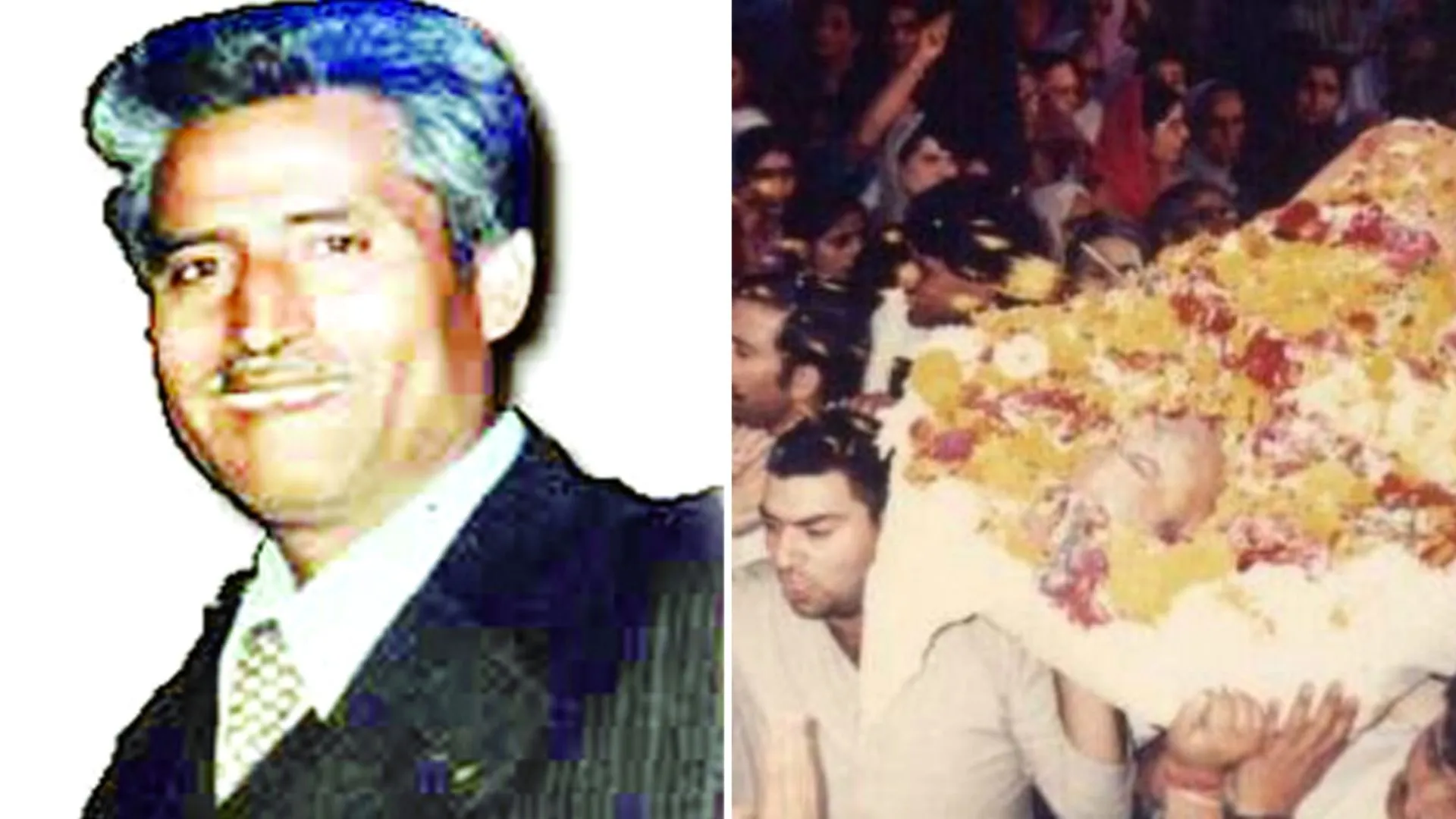Union Home Minister Amit Shah unveiled the Bharatiya Janata Party’s manifesto for the upcoming Jammu and Kashmir Assembly elections on Friday.
The manifesto, featuring 25 key promises, focuses on women, youth, Kashmiri Pandits, temple restoration, and the fight against terrorism. BJP J&K chief Ravinder Raina called it a “people’s manifesto.”
The party has particularly addressed the concerns of its core supporters—the Kashmiri Pandits—by pledging their ‘ghar wapsi’ (return) under the Tika Lal Taploo Visthapit Samaj Punarvas Yojana (TLTVSPY), contingent on forming the government—the first since the abrogation of Articles 370 and 35A. But who was Tika Lal Taploo, and why did the BJP name this scheme in his honor?
Taploo was a highly respected Kashmiri Pandit leader, a dedicated lawyer, and one of the early BJP leaders from the Valley. He was killed during the insurgency by militants associated with Yasin Malik’s Jammu and Kashmir Liberation Front (JKLF). Born in Srinagar, Taploo pursued higher education in Punjab and Uttar Pradesh but returned to his homeland to serve Jammu and Kashmir. He played a pivotal role in the Kashmiri Pandit community, facing imprisonment several times during agitations in 1967 and the Emergency. He later became the vice-president of BJP in the Valley, but like many Pandits, he was tragically assassinated.
READ MORE: EAM Jaishankar to visit Saudi Arabia, Germany and Switzerland, aims to STRENGTEN BILATERAL TIES
In an interview with NewsX, prominent Kashmiri Pandits, including Ravinder Pandita, Amit Raina, Dr. Ramesh Raina, and Utpal Kaul, the international coordinator of the Global Kashmiri Pandit Diaspora, discussed the BJP’s manifesto and its commitments to the Kashmiri Pandit community.
During the launch, Amit Shah emphasized that the initiative would involve consultations with Kashmiri Pandit representatives and the establishment of a welfare board for the displaced community to protect their rights. This article delves into the manifesto’s significance, with Kashmiri Pandits highlighting that their ‘ghar wapsi’ must include a safe return to the homes they’ve known for decades.
Dr. Ramesh Raina, a leading voice in the Kashmiri Pandit community, expressed cautious optimism about the manifesto. “While it’s just on paper for now, it’s a positive start. We’ve been waiting for the rehabilitation of Kashmiri Pandits to become a reality for nearly a decade. The BJP’s focus on students, elderly women, and housewives is promising,” Raina said.
He recalled, “We need to go back nearly a decade to when the then-President of India, Pranab Mukherjee, presented the BJP government’s agenda in Parliament in 2014. The rehabilitation of Kashmiri Pandits was prominently mentioned. For these 10 years, we’ve been waiting, hoping something would happen. The BJP has been in power twice—once with Mufti Mohammad Sayeed and again with Mehbooba Mufti—but there was silence. Today, however, the manifesto holds much promise. I would call it a people’s manifesto because of its progressive nature.”
Although the BJP’s manifesto addresses core issues like reclaiming temple lands and eradicating terrorism, some Kashmiri Pandit leaders are skeptical about its execution. “We have immense faith in Prime Minister Modi’s leadership, but electoral politics in Jammu and Kashmir may prevent the BJP from fulfilling its promises,” said Amit Raina.
He added, “The BJP made a bold move by creating two reserved seats for the displaced community, ensuring they have a voice in the upcoming assembly. This is a welcome step. However, on other fronts, like temple and shrine restoration, we’ve seen little progress. The Distressed Migrant Act, which aimed to reclaim Kashmiri Pandit lands, has had poor implementation.”
Reflecting on the community’s long-standing struggles, Utpal Kaul stated, “This is the first significant manifesto we’ve seen in 34 years. The BJP has finally announced a census to counter the false narrative that only 75,000 Kashmiri Pandits remain in Kashmir. In reality, our numbers exceed 5 million, with many becoming refugees in their own country.”
Kaul also stressed the importance of temple restoration, noting that 450 out of 1,400 temples in Kashmir have been destroyed or damaged. “Restoring these temples is vital for preserving our heritage,” he said.
“We’ve endured generational genocide, and this seventh wave was worse than those committed by the Afghans or Mughals. I worked closely with Tika Lal Taploo for 20 years, and I’m proud to see the BJP honor him with the Tika Lal Taploo Yojana for rehabilitation. It’s particularly meaningful because they consulted us,” Kaul added.
While the manifesto offers much to the Kashmiri Pandit community, its implementation depends on the BJP forming the next government in Jammu and Kashmir. Ravinder Pandita commented, “A manifesto is only a guideline. Whether these promises are kept depends on whether the BJP comes into power.”
“I believe that any displaced community needs political, social, and economic empowerment. Unfortunately, manifestos from the National Conference and PDP have failed to provide this. The BJP is a new player in Kashmir politics, and the best part of their manifesto is that it covers all key aspects. However, we must remember that a manifesto is just a guideline—it doesn’t guarantee immediate action. The realization of these promises hinges on whether the BJP forms the next government in J&K. I’m happy they’ve honored martyrs like Tika Lal Taploo,” Pandita continued.
He concluded, “Ultimately, Kashmiri Pandits are the solution to the Kashmir problem. Until the aboriginals return to the valley, the entire state, including the occupied territories, belongs to us. The BJP has touched on this by addressing terrorism and promoting tourism. Their promises feel more like a roadmap than just a manifesto.”
The manifesto also commits to eradicating terrorism and boosting tourism, acknowledging that peace in Kashmir depends on the return of the Kashmiri Pandits. As Pandita emphasized, “Kashmiri Pandits are the solution to the Kashmir problem. Until we return, the valley will not see peace.”
With the elections approaching, all eyes are on whether the BJP can deliver on its bold promises and reshape the future of Jammu and Kashmir.
WATCH THE FULL DISCUSSION BELOW:
ALSO READ: Lucknow Building Collapse: Five Dead, 28 Rescued As Rescue Operations Continue















